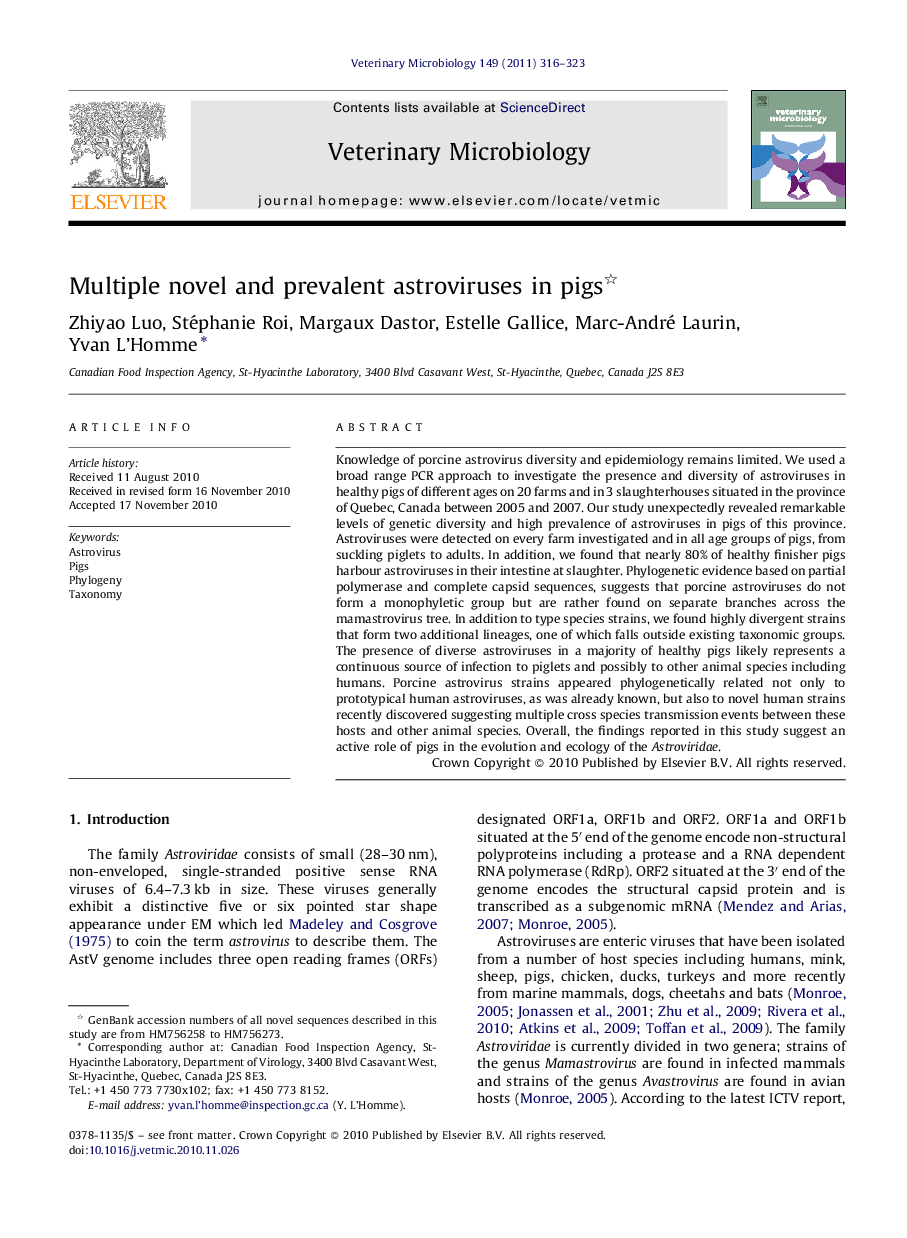| Article ID | Journal | Published Year | Pages | File Type |
|---|---|---|---|---|
| 5801571 | Veterinary Microbiology | 2011 | 8 Pages |
Knowledge of porcine astrovirus diversity and epidemiology remains limited. We used a broad range PCR approach to investigate the presence and diversity of astroviruses in healthy pigs of different ages on 20 farms and in 3 slaughterhouses situated in the province of Quebec, Canada between 2005 and 2007. Our study unexpectedly revealed remarkable levels of genetic diversity and high prevalence of astroviruses in pigs of this province. Astroviruses were detected on every farm investigated and in all age groups of pigs, from suckling piglets to adults. In addition, we found that nearly 80% of healthy finisher pigs harbour astroviruses in their intestine at slaughter. Phylogenetic evidence based on partial polymerase and complete capsid sequences, suggests that porcine astroviruses do not form a monophyletic group but are rather found on separate branches across the mamastrovirus tree. In addition to type species strains, we found highly divergent strains that form two additional lineages, one of which falls outside existing taxonomic groups. The presence of diverse astroviruses in a majority of healthy pigs likely represents a continuous source of infection to piglets and possibly to other animal species including humans. Porcine astrovirus strains appeared phylogenetically related not only to prototypical human astroviruses, as was already known, but also to novel human strains recently discovered suggesting multiple cross species transmission events between these hosts and other animal species. Overall, the findings reported in this study suggest an active role of pigs in the evolution and ecology of the Astroviridae.
